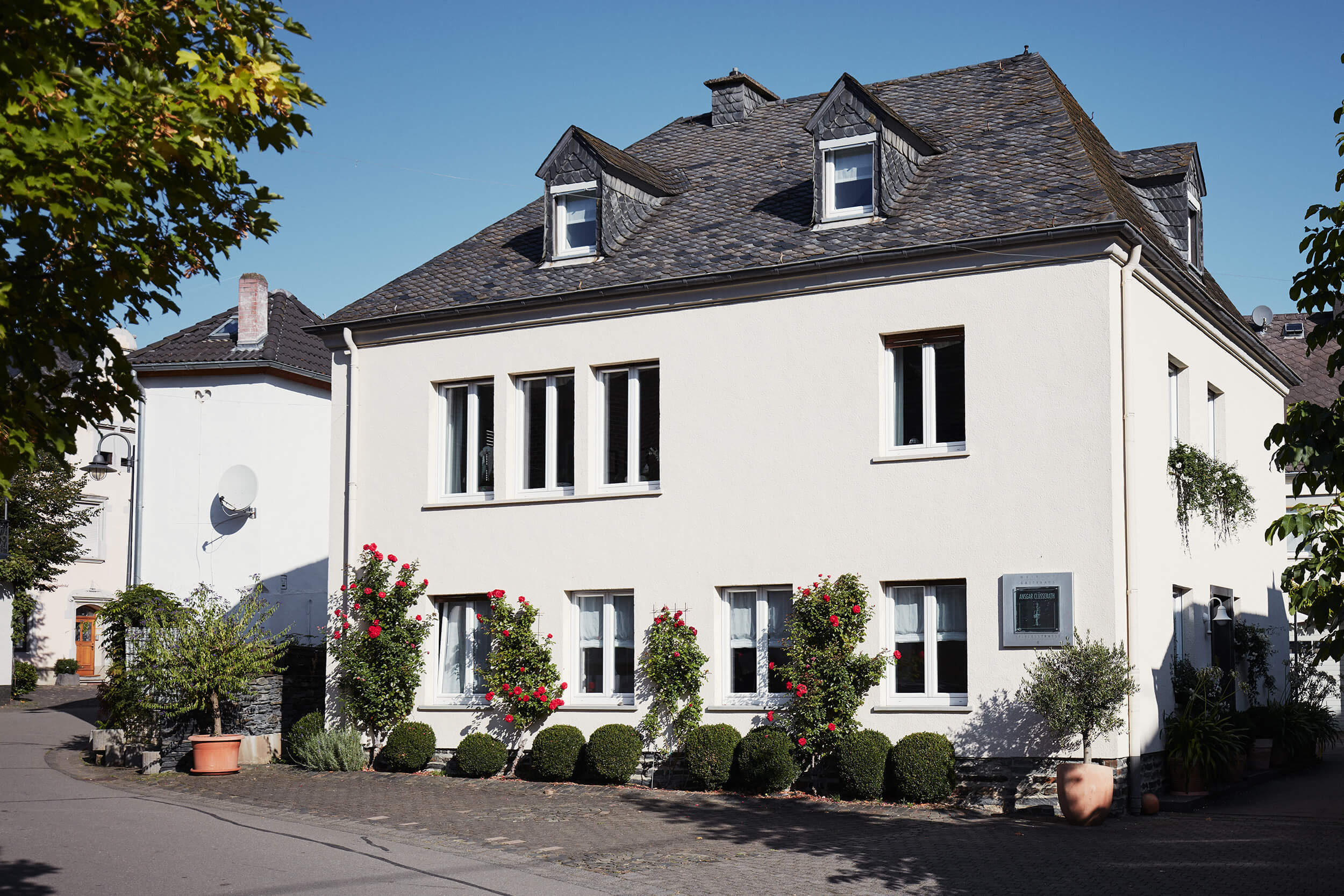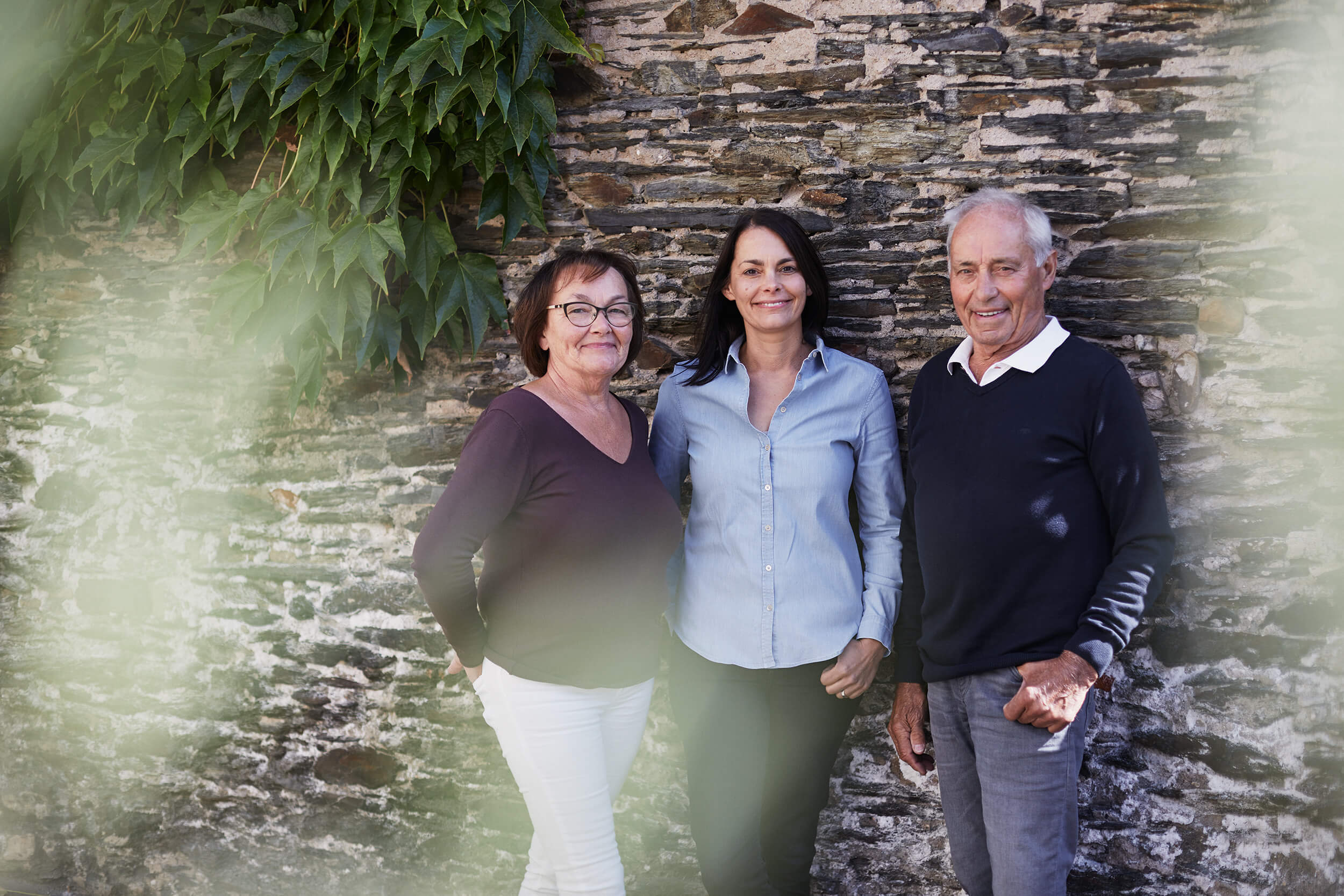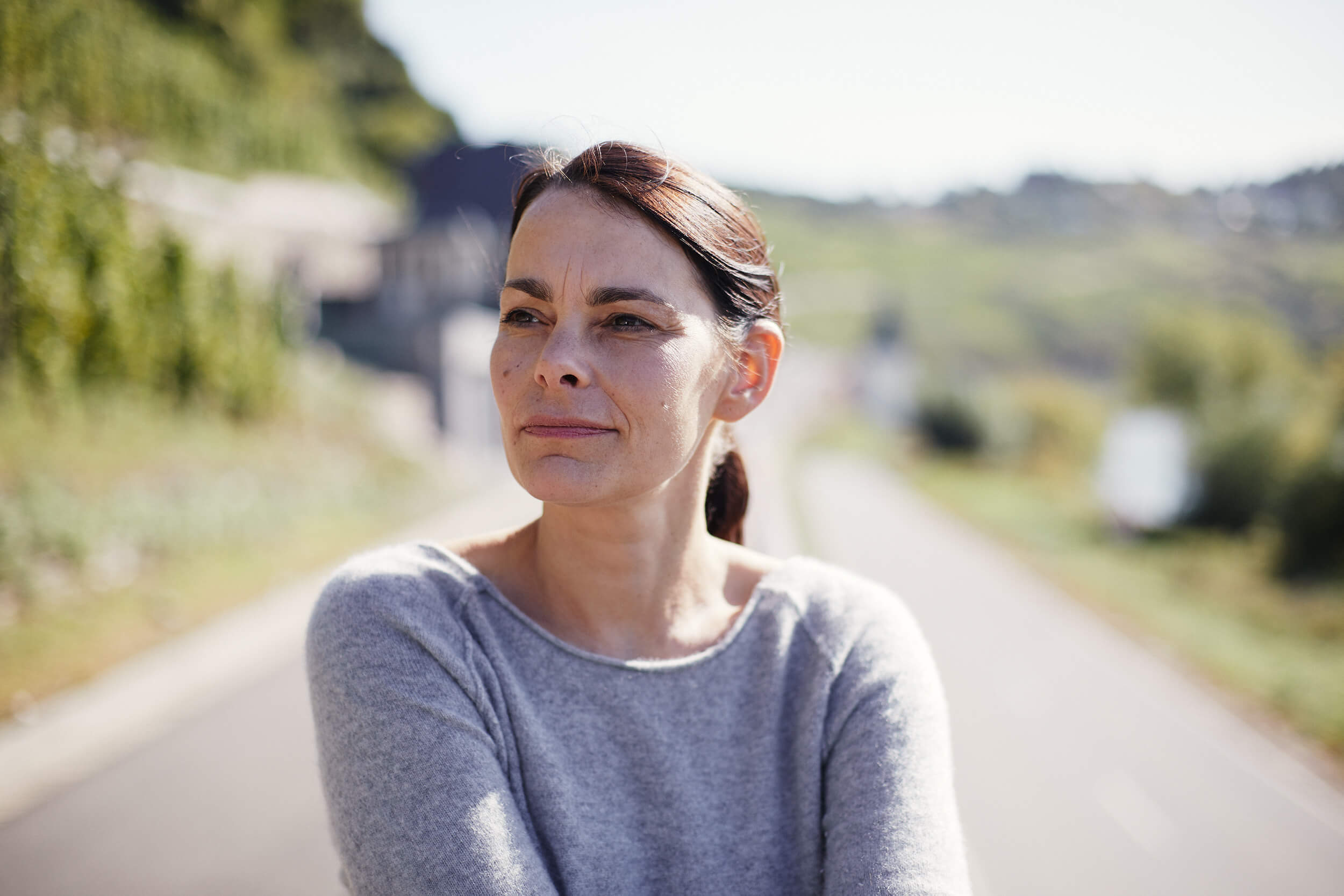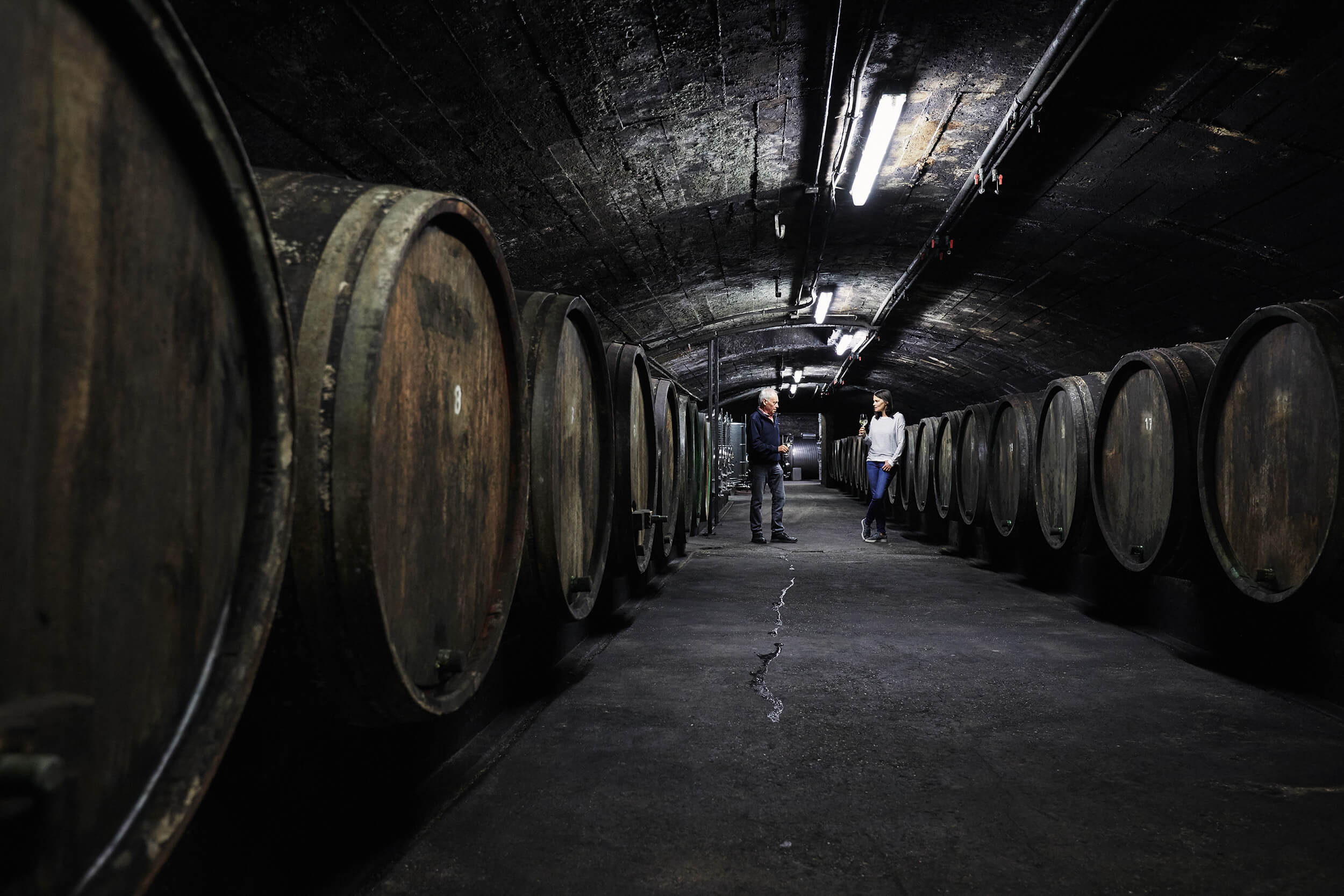Mosel.
Slate.
Riesling.
Family is a simultaneous sense of security and responsibility
No one can lead an estate all by themselves. Especially not on the steepest slopes of the Mosel Valley. Eva Clüsserath knows that her family stands behind her always with aid and encouragement. Father Ansgar gave the estate its name; mother Elsbeth helps her winemaking daughter in the vineyard, the sales office and the guest house.
And naturally there is also a built-in support system through husband Philipp Wittmann, whose Rhinehessian perspective offers a counterpoint to Eva's more typically Mosel stylings.

Slate
in genes.
Knowledge as a family heirloom
Viticulture on the Mosel looks back on hundreds of years of tradition. Weingut Clüsserath has been in operation since 1670, always under family ownership.
The collected knowledge and experience in Riesling cultivation is passed down from generation to generation. Meticulous manual labor is undertaken on the finest sites around Trittenheim, currently planted with Riesling vines that are up to 100 years old.
Eva Clüsserath builds on this trove of experience, even as she also invests for the coming generation — and the next century in the history of Weingut Clüsserath.

The woman for Riesling on the Mosel
She speaks the true language of Riesling. Eva Clüsserath-Wittmann is an expert in more than just her home region, the Mosel. She also knows the Pfalz and Rheinhessen, both bastions of Riesling cultivation, like the back of her hand. The former reflects her prior work for the VDP.Pfalz; the latter her husband Philipp Wittmann, who produces Rieslings to great success in Westhofen.
Yet ultimately it is Eva, a graduate of Geisenheim, who acts as a conductor of the fine tones here, producing wines that are never showy or excessive. Her wine style is straight, taut, almost Saar-like. Without question she is considered among the finest working on the Mosel, and each bottle bears the entirely distinct signature of Eva Clüsserath.

Time:
The factor that matters most.
Each barrel is part of a larger wine history
The wines call the tune here. Because only they know how much time is enough to ferment and mature. Winemaker Eva Clüsserath listens patiently, allowing them whatever space they need. After an initial period of skin contact, the grapes are pressed and filled into "Mosel fuder" — used 1000L oak barrels common to this region — where wild fermentation begins. Even well into spring you can still hear a light bubbling from the barrels.
Bottling comes only after an extended period on the lees, well into late summer and following just one pass of filtration. This very slow and natural form of winemaking is the real cultural heritage of the Mosel, which Eva Clüsserath has rediscovered for her own family's estate. The unbelievable aging potential resulting from this helps ensure that Clüsserath wines will continue to spread joy for decades to come.
